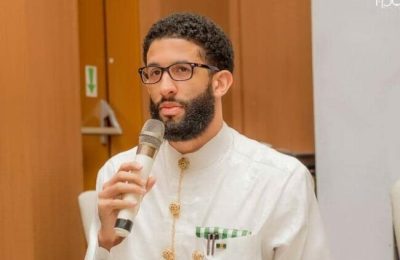THE contention over the right candidate to fly the flag of the All Progressives Congress (APC) in the November 11, 2023 governorship election in Kogi State appears set for a long-drawn battle. Though the governorship election committee headed by ex-governor Bello Matawalle had submitted its report of the primaries conducted on April 14, and returned Alhaji Usman Ododo, the contenders are not letting go, as they await the verdict of the Court of Appeal on the seemingly endless battle.
On July 12, Justice James Omotosho of the Federal High Court, Abuja, ruled on a suit filed by Senator Smart Adeyemi challenging the return of Alhaji Usman Ododo as the governorship candidate of the party.
Ruling in the suit marked FHC/ABJ/CS/556/23, Justice Omotosho declared that the appellant’s (Senator Adeyemi) originating summons lacked merit. He said that Senator Adeyemi did not prove his claim and that Ododo had not been validly elected. Justice Omotosho noted that the burden of proof was on the applicant to produce the original copies of the results to discharge the burden and added that failure to discharge the burden was fatal to the applicant’s case. The court held that contrary to the plaintiff’s position, there was evidence that the primary election was validly held and monitored by the Independent National Electoral Commission (INEC.) He appeared to agree with the submission of counsel to Ododo, who had submitted that the Appeal Committee of the APC electoral panel had listened to Adeyemi’s appeal shortly after the primary election and that the Senator did not prove his allegations before the Appeal Committee.

Records of the processes at the Federal High Court had provided details of the report of the Appeal Committee partly relied upon by the trial judge to make his ruling. “That all the petitions are devoyuoid of merit having not been substantiated by evidence. All the appellants did was make unsubstantiated allegations without the necessary particulars such as names, place, ward, and Local Government Areas. The appellants also failed to supply particulars and /or proof which could enable the committee verify the veracity of the allegations made,” the APC committee had told the court.
Dissatisfied by the ruling of Justice Omotosho, counsels to Senator Adeyemi immediately filed an appeal at the Court of Appeal, Abuja Division, where they claimed that the trial judge erred in law to have attempted to give a legal cover to the APC primary in Kogi State.
The counsels further denied making any forgery allegation and averred that the claims of the applicant in the suit only bothered APC’s non-adherence to the constitution, the rules and guidelines of the APC as regards the conduct of primaries.

On August 9, a three-man panel of the Court of Appeal, Abuja Division, led by Justice Muhammed Lawal Shuaibu, and including Justice Abdullazees Wasiri and Justice H.A Abiru heard that appeal in the suit with reference number CA/ABJ/CV/819/2023. The panel had since deferred ruling on the matter till a later date.

Court documents available to the Nigerian Tribune indicate that Adeyemi, through his counsels, M.J. Numa, (SAN), and Dr. Adekunle Otitoju had asked the Court of Appeal in Abuja, to void the ruling of the Federal High Court on “five cogent grounds” of appeal, which they said were “construed from the erroneous findings of the learned trial judge.”
According to the counsels, it was an undisputed fact that the originating summons filed by Adeyemi revolved around the failure of the APC to conduct direct primaries in conformity with its guidelines and the Electoral Act 2022, adding that the said Usman Ododo had emerged from a non-existent primary election.
They had also contended that whereas the conduct of direct primaries indicate the use of open-secret ballots in the 239 wards of the state, the APC could not provide evidence of the ballots, having allegedly adopted Option A4 system of voting, while the elections were conducted at the local government level rather than at locations in the electoral wards.
“The entirety of the appellant’s contention before the trial court and indeed this honourable court was centered on the non-conduct of election and does not remotely contemplate criminal allegations of any degree but the fact that 1st respondent ( the APC) produced election results that purportedly produced the 3rd respondent (Usmam Ododo) without first conducting direct primary elections as scheduled on the 14th day of April 2023 from the ward level,” the counsels submitted.
The counsels discountenanced the claim by the trial court that the plaintiff failed to prove beyond “reasonable doubt” claims of forgery of results against the respondents, contending that the forte of their arguments was not forgery but lack of adherence to the rules and guidelines.
The counsels submitted thus: “Regrettably, the learned trial Judge with all due respect misapprehended and indeed mischaracterized the Appellant’s case wherein His Lordship held that the appellant purportedly failed to prove the criminal allegation and to produce two sets of results, thereby increasing the standard proof required to ‘beyond a reasonable doubt’ that is strictly for criminal matters.
“My Noble Lords, from the foregoing narration, it is glaring that the Appellant’s contention is entirely deficient of forgery allegations cum criminality that would have required the standard of proof to be beyond a reasonable doubt. “Conversely, the Appellant’s suit borders on a purely civil infraction which require a standard of proof on the balance of probabilities and the preponderance of evidence which the appellant properly discharged before the trial court…”
Adeyemi’s counsels further contended that the decision of the trial judge “made out a different cause at variance with what is presented by the Appellant is “perverse” and that this is an appropriate point for the intervention of the court of appeal.
The counsels, therefore, stated that the issues for determination as including whether the 1st respondent complied with the provisions of the Electoral Act 2022 in the conduct of direct primaries election that purportedly produced the 3rd respondent; whether the trial judge was right to have held that the appellant ought to have established his case that is devoid of criminality beyond reasonable doubt; whether the trial judge was right to have relied on the report of the Appeal Committee of the APC which they said failed to hear the petition of the appellant and whether depending on the totality of the evidence adduced, the trial judge was right to have said that the 1st respondent, the APC complied with the provisions of the guidelines and the Electoral Act, 2022 in the conduct of the primaries of April 14, 2023.
The counsels, therefore, submitted: “My Noble Lords, we humbly answer the above question in the negative to the extent that the 1st Respondent did not conduct any direct primary election as per the provisions of its guidelines and indeed the provisions of the Electoral Act, 2022. To embark on this legal exposition, may we first invite Your Lordships to the
clear letters of Section 84(4) (a) & (b) of the Electoral Act, 2022 which provides thus: “A political party that adopts the direct primaries procedure shall ensure that all aspirants are given equal opportunity of being voted for by members of the party and shall adopt the procedure outlined(a) in the case of Presidential Primaries, all registered members of the party shall vote for aspirants of their choice at a designated centre at each ward of the Federation; (b) the procedure in paragraph (a) shall be adopted for direct primaries In respect of gubernatorial, Senatorial, Federal and State Constituencies.”
The counsels also aligned with the provisions of Article 20 (4) of the APC Guidelines for primaries which provides that “Direct primaries shall be by party members in every ward by open- secret ballots for the candidate of their choice.”
They contended that the judgement of the High Court was “perverse and occasioned a miscarriage of justice and accordingly urge Your Lordships to find merit in the Appellant’s contention and set aside the judgment of Trial Court without much ado.”
Counsel to Ahmed Usman Ododo, Barrister M.Y Abdullahi, SAN, and his team had also submitted a counter-affidavit before the court to insist on the veracity of the result that returned Ododo as a candidate. He claimed that the fact that the APC and the Appeal Committee considered the appeal of the plaintiff immediately after the primary was evidence of a fair hearing and that the committee only found the petition “unmeritorious.”
He submitted: “That the petition of the applicant was considered by the 1st respondent’s Governorship Primary Election Appeal Committee and found same unmeritorious as the applicant failed to substantiate by credible evidence allegations that the elections were conducted by Local Government Chairmen or that electoral materials were diverted to their private residences where fictitious scores were rolled out in favour of the 3rd respondent.”
But Adeyemi’s counsels found the above as another evidence of lack of fair hearing as according to them the trial judge failed to satisfy that the appellant was not given the opportunity to present his case before the Appeal Committee.
Counsels for Ododo had made similar claims at the High Court where they claimed that their client emerged from a primary election of the APC, which they said was conducted by the electoral committee in accordance with the Electoral Act 2022. They also claimed that the applicant had submitted a letter of appeal to the APC Kogi State Primary Election Appeal Committee but that he had failed to “take the democratic choice of his party. The Appeal Committee, reached out to the applicant to appear before it to present his case, he failed to so appear, despite which fact, the Appeal Committee still considered his appeal on the merit…,” the counsel had submitted.
Senator Adeyemi’s counsels have, however, averred that the main contention of their client was that APC’s primary that produced Ododo was in violation of Section 117 (c ) of the 1999 Constitution, section 29(1) and 84(4) of the Electoral Act 2022 and Article 20(4) of the APC Constitution. They said that the questions already put before the trial and appeal courts fully justify the claims.
As the parties await the verdict of the appellate court on this matter, suspense has continued to rule the political horizon of Kogi, even as the days allotted by INEC for open campaigns ahead of the November 11 election, draw closer.
ALSO READ FROM NIGERIAN TRIBUNE








